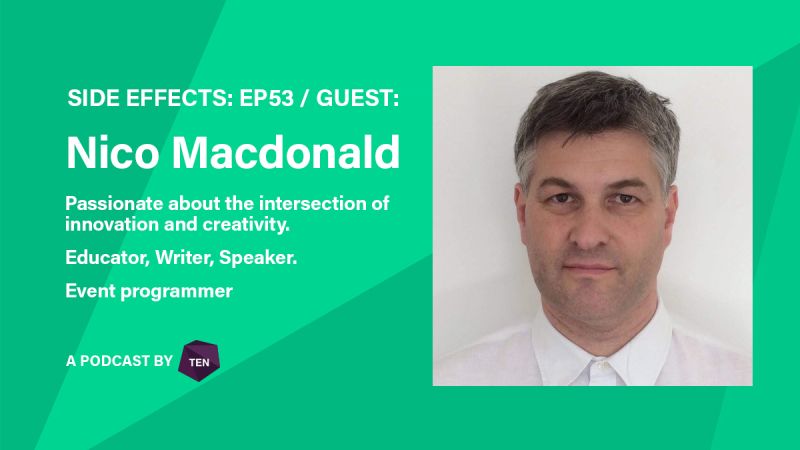
For the Side Effects Podcast hosted by TEN – The Discovery and Design Channel in Health, I was interviewed by its founder, Matt Pattison. We discussed modern public discourse, ways of understanding and thinking (not least in education), and the politics of ICT.
References
See the podcast page for chapters/timecodes and TEN’s excellent linking of the references which came up in the discussion.
My post about the interview, on LinkedIn, which I would value anyone sharing there.
Description
I appreciated the chance to share some of my more recent thinking, which is nascent and somewhat discursive but – I hope – thought-provoking and which I for the basis for much for my writing and speaking in the next period. I would value colleagues’ thoughts and criticisms.
We begin on the idea of getting ‘out of the (filter) bubble’ and I talk about the importance of increasing our ability to debate and engage in healthy discourse, and argue for the right to interrogate and to be interrogated. I note my learning from journalism – and from Richard Saul Wurman – about the power of really listening to what people say. And I reflect on why today we’re less exposed to different and varied and opinions. (It’s to do with the decline of mutual institutions and increasing risk aversion.)
In the context of my teaching I argue that in the UK we need greater diversity of thinking in the Creative Industries (and beyond) – advocating intellectually ’T-shaped’ practitioners – and discuss the importance of teaching people to be critical and to be able to interrogate ideas. I also touch on the increasing danger of becoming a ‘pariah in the academy’, and the way in which the new racial thinking is tending to divide us. And I explain, essentially, the idea of ‘critical thinking’ and the danger of reverting to pre-Enlightenment, pre-modern ways modes of enquiry.
On ways of thinking and understanding, I discuss the idea of paradigms and why we need them to make sense of data and information. Specifically I explain about how using an out-of-date political paradigms leads to confusion and a cognitive dis-ease. I coined the term ‘Paradigm Underload’ to describe this. Example I give include Brexit and populism, (anti-)racism and identity, and lockdown and mask-wearing.
Moving to ethics, ICT and artificial intelligence, we talk about the mistaken idea that technology has agency; the lack of discussion of the role of ICT in surveillance of the (remote) workplace; the lack of innovation in the way we use ICT (whatever happened to ‘document centric computing?’); and, around data, the greater threat of the power of governments than of corporations.
On the related but somewhat less controversial issue of knowledge sharing, I suggest we need to innovate, and to improve our practices including how we collaborate. I also note some of the tools and techniques with which I am experimenting.
Related
If you like the podcast you may also find interesting the episodes with my colleagues Kursty Groves and with Andy Wilkins.
